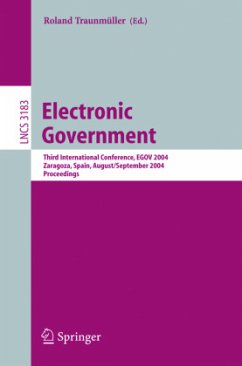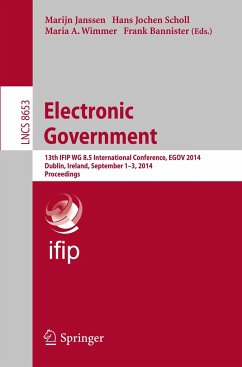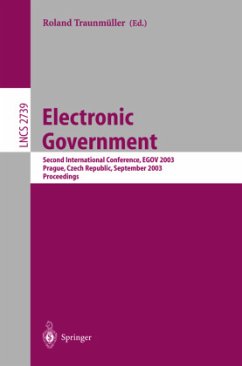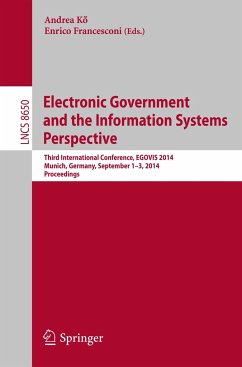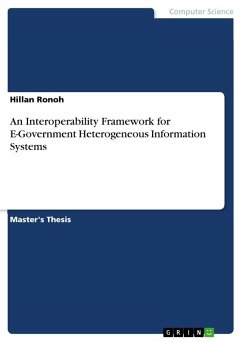
Scope Management in e-Government in Transition Economies
Case study on the impact of time, cost and scope in the Integrated System of the Electronic Government of Bulgaria
Versandkostenfrei!
Versandfertig in 6-10 Tagen
22,99 €
inkl. MwSt.

PAYBACK Punkte
11 °P sammeln!
E-government is becoming an enabler for better government through cost-effective and efficient service delivery, and can become a useful tool for effective governance, public administration, and public sector transformation. However, e-government projects are noted for many failures due to several reasons. These include inadequate planning, poor project management, lack of top management support, lack of stakeholder involvement, scope creep, etc. Based on the project management literature, as well as on variance analysis on a representative real world exploratory case study on a national e-gov...
E-government is becoming an enabler for better government through cost-effective and efficient service delivery, and can become a useful tool for effective governance, public administration, and public sector transformation. However, e-government projects are noted for many failures due to several reasons. These include inadequate planning, poor project management, lack of top management support, lack of stakeholder involvement, scope creep, etc. Based on the project management literature, as well as on variance analysis on a representative real world exploratory case study on a national e-government project(www.egov.bg), this work is set out to investigate the impact of different factors on scope creep and outline lessons learned and provide recommendations to ensure effective scope management and to increase the success rate of e-government projects with regard to the most common problem fields in project management and control: time, cost and scope. The acquired results show positive impact between the level of project management and achieving the planned results and meeting stakeholder expectations though adoption of PMBOK based project management in e-governmental ICT projects.




